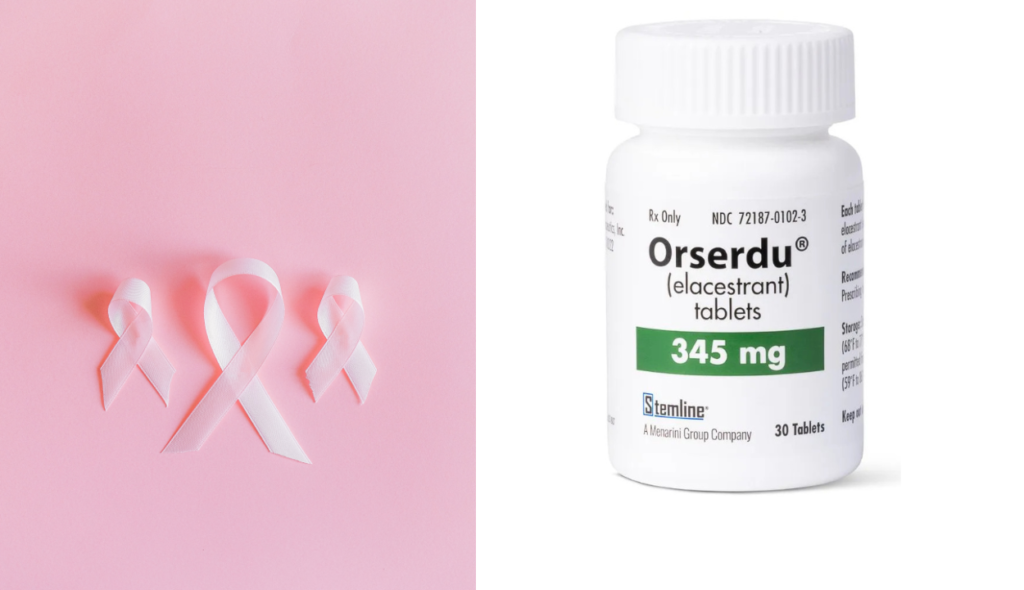In February 2023, the Food and Drug Administration (FDA) approved elacestrant (Orserdu, Stemline Therapeutics, Inc.) for women or men over 50 who have advanced or metastatic breast cancer and are ER-positive, HER2-negative, and have ESR1 mutations. The disease has progressed after at least one line of endocrine therapy.
The Guardant360 CDx assay was also given FDA approval as a companion diagnostic tool for elacestrant treatment of patients with breast cancer.
EMERALD (NCT03778931), a randomised, open-label, active-controlled, multicenter trial that included 478 postmenopausal women and men with advanced or metastatic breast cancer in whom 228 patients had ESR1 mutations, investigated the effectiveness of the treatment. Patients had to have seen disease progression after receiving one or more lines of endocrine therapy in the past, including at least one line that contained a CDK4/6 inhibitor. Patients who were eligible could have had up to one prior line of chemotherapy for advanced or metastatic disease. Elacestrant 345 mg orally once daily was given to patients who were randomly assigned (1:1) to receive it or investigator’s choice of endocrine therapy, which included fulvestrant (n=166) or an aromatase inhibitor (n=73). ESR1 mutation status (found vs. not found), previous fulvestrant treatment (yes vs. no), and visceral metastasis were used to divide the patients into groups for randomization (yes vs. no). The Guardant360 CDx assay was used to identify ESR1 missense mutations in the ligand binding domain and was limited to blood circulating tumour deoxyribonucleic acid (ctDNA).
The main efficacy outcome measure was progression-free survival (PFS), which underwent evaluation by a blinded imaging review committee. In the population with ITT and in the subgroup of patients with ESR1 mutations, there was a statistically significant difference in PFS.
The median PFS was 3.8 months (95% CI: 2.2, 7.3) for the 228 (48%) patients with ESR1 mutations treated with elacestrant and 1.9 months (95% CI: 1.9, 2.1) for those treated with fulvestrant or an aromatase inhibitor (hazard ratio [HR] of 0.55 [95% CI: 0.39, 0.77], 2-sided p-value=0.0005).
The 250 (52%) patients without ESR1 mutations in the exploratory analysis of PFS had an HR of 0.86 (95% CI: 0.63, 1.19) indicating that the results seen in the ESR1 mutant population were predominantly responsible for the improvement in the ITT cohort.
Musculoskeletal pain, nausea, elevated cholesterol, elevated AST, elevated triglycerides, fatigue, decreased haemoglobin, vomiting, elevated ALT, elevated sodium, elevated creatinine, decreased appetite, diarrhoea, headache, constipation, abdominal pain, hot flush, and dyspepsia were the most frequent adverse events (10%), including laboratory abnormalities.
It is advised to take 345 mg of elacestrant once daily with food until the disease progresses or the toxicity becomes intolerable.
View full prescribing information for Orserdu.


